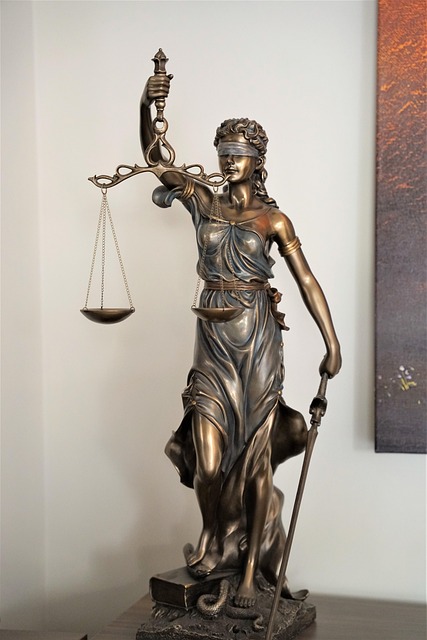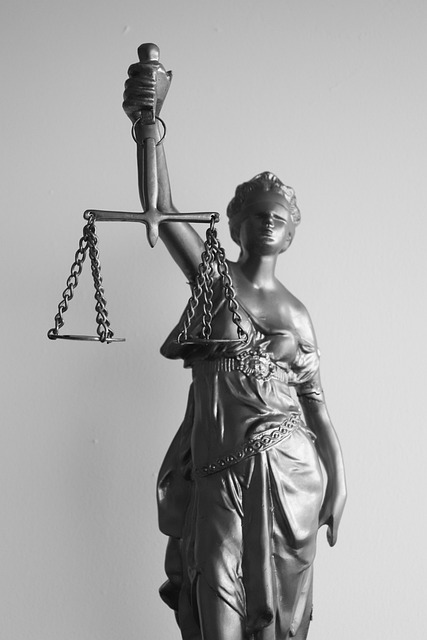C-Level Investigations are comprehensive probes into executive misconduct within corporations, focusing on consumer protection lawsuits where compensation is a key factor. These high-stakes cases delve into complex legal and financial matters to assign individual responsibility and achieve fair resolutions. By meticulously examining corporate structures and processes, these investigations promote transparency and integrity. In Consumer Protection Lawsuits, effective compensation strategies aim to deter future misconduct, provide relief to victims, restore fairness, and build a positive public image. C-Level investigations are launched based on concerns about corporate governance, regulatory compliance, or fraud, with the primary goal of ensuring accountability and protecting stakeholders. The meticulous process involves identifying violations, gathering evidence, conducting interviews, strategic navigation through discovery processes, and aiming for fair compensation or charge dismissal. A strategic, multifaceted approach is crucial for effective risk mitigation and preserving business reputation, including quick containment, thorough documentation, proactive communication, and adherence to Consumer Protection Laws.
“In the complex landscape of corporate investigations, C-Level inquiries stand as pivotal moments for organizations. This article offers a comprehensive exploration of these high-stakes processes, particularly focusing on their relationship with compensation in consumer protection lawsuits. We delve into the triggers, from regulatory pressures to public scrutiny, that initiate these probes. Understanding the intricate steps involved—from initial investigations to resolution—is crucial for businesses aiming to navigate these challenges effectively and mitigate potential consumer protection liabilities.”
- Understanding C-Level Investigations: A Deep Dive
- The Role of Compensation in Consumer Protection Lawsuits
- When and Why C-Level Investigations are Launched
- The Process: From Initiation to Resolution
- Strategies for Effective Handling and Mitigation
Understanding C-Level Investigations: A Deep Dive
C-Level Investigations refer to high-level inquiries into corporate or executive misconduct, often involving complex legal and financial matters. These investigations are crucial in ensuring accountability, especially in consumer protection lawsuits where compensation plays a significant role. In the context of Consumer Protection Lawsuits, such probes delve into alleged violations that lead to substantial financial losses for consumers, making them high-stakes cases.
Understanding C-Level Investigations involves navigating intricate legal and business landscapes. The goal is not merely avoiding indictment but achieving complete dismissal of all charges. These investigations require meticulous examination of corporate structures, decision-making processes, and potential misdeeds to ascertain individual responsibility. By focusing on compensation and ensuring fair resolutions, these inquiries foster a culture of transparency and integrity within organizations, especially as businesses navigate the dynamic landscape of consumer protection laws.
The Role of Compensation in Consumer Protection Lawsuits
In Consumer Protection Lawsuits, the role of compensation is multifaceted. When a company or individual engages in white-collar and economic crimes, such as fraudulent activities or misuse of consumer funds, the impact on affected parties can be severe. Compensation in these cases serves not only to make up for financial losses but also to deter future misconduct by achieving extraordinary results in legal proceedings. The goal is to hold perpetrators accountable while providing relief to victims, thereby restoring a sense of fairness and justice.
Effective compensation strategies are crucial for avoiding indictment and mitigating the long-term effects of criminal charges. By offering just and prompt recompense, companies can demonstrate their commitment to transparency and ethical conduct. This proactive approach not only helps in building a positive public image but also fosters trust among consumers, ensuring that similar incidents are less likely to occur in the future.
When and Why C-Level Investigations are Launched
C-Level investigations are launched when companies or individuals at the highest executive level are suspected of misconduct, often involving high-stakes cases with significant legal and financial implications. These probes are typically initiated due to concerns related to corporate governance, regulatory compliance, or allegations of fraud, especially in consumer protection lawsuits where compensation may be a key factor. The timing is crucial; they can start as soon as initial red flags emerge or after an incident has occurred, leading to potential legal repercussions.
The motivation behind such inquiries lies in the need to uphold ethical standards and ensure accountability within organizations. It’s not just about legal compliance but also protecting the interests of stakeholders, including employees, investors, and consumers. These investigations play a pivotal role in all stages of the investigative and enforcement process, especially in complex cases where philanthropic and political communities may be impacted, necessitating meticulous handling to mitigate potential crises.
The Process: From Initiation to Resolution
The process of C-Level investigations launched in the context of consumer protection lawsuits is meticulous and demanding. It begins with the initiation phase, where a potential violation or complaint is identified, triggering a thorough review. This initial step involves gathering preliminary evidence, conducting interviews, and analyzing relevant data to determine the viability of pursuing legal action. Once initiated, the investigation progresses through careful navigation of discovery processes, including document requests, depositions, and expert witness consultations.
As the process unfolds, investigators delve into the facts, uncovering insights that may lead to significant outcomes. This journey often culminates in a resolution—either through settlement negotiations resulting in fair compensation for affected consumers or a complete dismissal of all charges if the investigation finds no merit to the claims. An unprecedented track record of successful investigations and fair resolutions reflects the commitment to upholding consumer rights and strengthening the integrity of philanthropic and political communities.
Strategies for Effective Handling and Mitigation
When launching C-Level investigations, a strategic approach is vital to effective handling and mitigation. It’s not just about identifying wrongdoings but also minimizing damage and preserving the respective business’s reputation. A meticulous plan that encompasses all stages of the investigative and enforcement process is crucial. This includes initial assessment, evidence gathering, legal analysis, and ultimately, developing a robust strategy for negotiation or litigation. For his clients, the goal is to achieve the best possible outcome while ensuring compliance with Consumer Protection Laws, including considerations around compensation in respective business operations.
A strategic response involves quick action to contain the situation, thorough documentation of findings, and proactive communication with stakeholders. By implementing these measures, businesses can navigate complex legal landscapes and mitigate risks associated with high-level investigations. This proactive approach not only safeguards against potential penalties but also demonstrates a commitment to ethical conduct and transparency, fostering trust among customers and partners alike.
C-Level investigations, while complex, are essential tools in ensuring corporate accountability, especially in consumer protection lawsuits. By understanding the drivers behind their launch, the intricate process involved, and adopting effective handling strategies, organizations can navigate these challenges successfully. The role of compensation in such cases is pivotal, requiring a balanced approach to resolve legal disputes fairly and foster trust with stakeholders. This comprehensive guide highlights the key aspects of C-Level investigations, providing valuable insights for professionals navigating this critical realm.






